-
 Bitcoin
Bitcoin $96,056.1777
-1.59% -
 Ethereum
Ethereum $2,692.7257
-3.15% -
 Tether USDt
Tether USDt $1.0000
0.01% -
 XRP
XRP $2.3100
-5.75% -
 Solana
Solana $190.8185
-4.59% -
 BNB
BNB $576.6391
0.96% -
 USDC
USDC $0.9999
0.00% -
 Dogecoin
Dogecoin $0.2452
-5.64% -
 Cardano
Cardano $0.7058
-5.88% -
 TRON
TRON $0.2285
2.36% -
 Chainlink
Chainlink $18.6214
-4.55% -
 Avalanche
Avalanche $24.7650
-5.44% -
 Sui
Sui $3.1444
-7.70% -
 Stellar
Stellar $0.3172
-4.57% -
 Toncoin
Toncoin $3.7527
-2.23% -
 UNUS SED LEO
UNUS SED LEO $9.8250
-0.36% -
 Shiba Inu
Shiba Inu $0.0...01495
-6.61% -
 Hedera
Hedera $0.2295
-7.27% -
 Hyperliquid
Hyperliquid $24.6047
-3.82% -
 Bitget Token
Bitget Token $6.6955
1.90% -
 Litecoin
Litecoin $100.4638
-4.91% -
 Polkadot
Polkadot $4.5257
-5.19% -
 Bitcoin Cash
Bitcoin Cash $316.3917
-4.39% -
 Ethena USDe
Ethena USDe $1.0004
0.06% -
 MANTRA
MANTRA $5.9132
0.84% -
 Uniswap
Uniswap $9.0013
-4.24% -
 Dai
Dai $1.0000
0.01% -
 Ondo
Ondo $1.3367
0.86% -
 Monero
Monero $224.5297
-0.87% -
 Pepe
Pepe $0.0...09315
-7.95%
What is the distribution model of ARK coins?
In the ARK Proof-of-Stake Voting (PoSV) model, holders participate in the election of 51 delegates who validate transactions, secure the network, and receive block rewards and transaction fees as incentives for active governance.
Dec 26, 2024 at 03:19 am

Key Points
- ARK utilizes a unique distribution model known as Proof-of-Stake Voting (PoSV) to ensure fair coin distribution and community governance.
- Holders of ARK coins participate in the voting process to elect delegates responsible for validating transactions and securing the network.
- The top 51 delegates receive transaction fees and block rewards, providing incentives for active participation and network governance.
Proof-of-Stake Voting (PoSV) Model
- Consensus Mechanism: PoSV replaces traditional Proof-of-Work (PoW) mining with a voting-based consensus mechanism.
- Holder Participation: ARK holders vote for delegates, who are responsible for securing the network and validating transactions.
- Consensus Building: Delegates achieve consensus on the validity of new transactions, which are then added to the blockchain.
Delegate Selection and Voting Process
- Voting Weight: Each ARK coin held gives its owner a certain voting weight.
- Delegate Nomination: Coin holders can nominate themselves or other ARK holders as delegates.
- Election Process: Holders then vote for their preferred delegates through a secure and transparent voting system.
- Top 51 Delegates: The top 51 delegates with the highest vote counts are elected to represent the network for a defined period.
Delegate Responsibilities and Rewards
- Transaction Validation: Elected delegates are responsible for validating transactions and adding them to the blockchain.
- Network Security: Delegates contribute to the overall security of the network by maintaining the consensus mechanism.
- Block Rewards: Delegates receive block rewards for validating transactions and maintaining the network.
- Transaction Fees: Delegates also receive a portion of the transaction fees generated by network activity.
Benefits of the ARK Distribution Model
- Fair Distribution: PoSV ensures a fair distribution of coins to holders based on their participation in the voting process.
- Community Governance: Holders have direct influence over network governance by electing delegates who align with their interests.
- Network Security: Delegates are incentivized to maintain network security through block rewards and transaction fees.
- Scalability: The voting-based consensus mechanism of PoSV allows for scalability as the network grows.
FAQs
Q: How often are delegates elected?
A: Delegates are elected every 60 days.
Q: What are the requirements to become a delegate?
A: Potential delegates must hold a minimum of 50,000 ARK and maintain a reliable internet connection.
Q: Can I participate in the voting process without holding any ARK coins?
A: No, voting rights are only granted to holders of ARK coins.
Q: How much do delegates earn?
A: Delegates receive a portion of the transaction fees and block rewards generated on the network.
Q: Is the voting process secure?
A: The voting process is secured using cryptography and a transparent voting system.
Disclaimer:info@kdj.com
The information provided is not trading advice. kdj.com does not assume any responsibility for any investments made based on the information provided in this article. Cryptocurrencies are highly volatile and it is highly recommended that you invest with caution after thorough research!
If you believe that the content used on this website infringes your copyright, please contact us immediately (info@kdj.com) and we will delete it promptly.
- Arthur Hayes Is Worried About Donald Trump
- 2025-02-07 03:46:03
- Trump Media Plans Bitcoin ETF, Other Funds to Counter 'Woke' Investment Products
- 2025-02-07 03:46:03
- The Next Cryptocurrency to Explode: 5 Promising Tokens to Watch in 2025
- 2025-02-07 03:46:03
- Galoy Debuts Lending Platform to Meet 'Soaring' Demand for Bitcoin-Backed Loans
- 2025-02-07 03:46:03
- Solana Bulls Fail to Defend the $200 Support Level as the Coin Tumbles Towards $195
- 2025-02-07 03:46:03
- Ethereum (ETH) Price Prediction 2023 – Can ETH Rebound to $4k or Drop to $1500
- 2025-02-07 03:46:03
Related knowledge
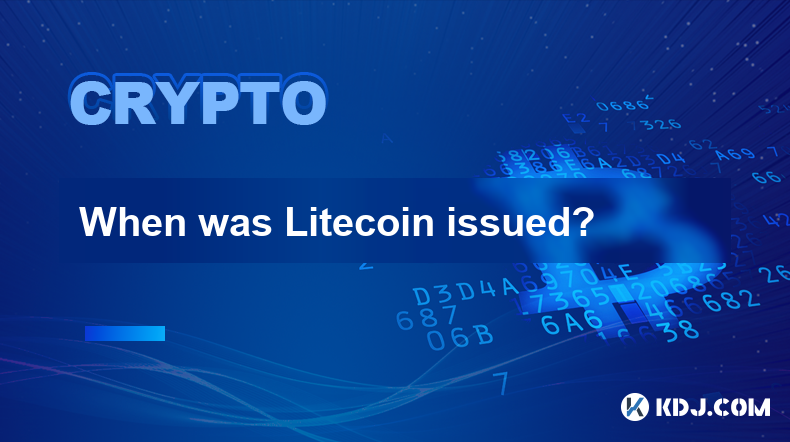
When was Litecoin issued?
Feb 04,2025 at 02:36am
When was Litecoin Issued?Key Points:Litecoin's inception and developmentLitecoin's launch date and market dynamicsLitecoin's technical specifications and key featuresLitecoin's Inception and DevelopmentLitecoin, conceived by former Google engineer Charlie Lee, emerged as a fork of Bitcoin in October 2011. Inspired by Bitcoin's revolutionary blockchain t...
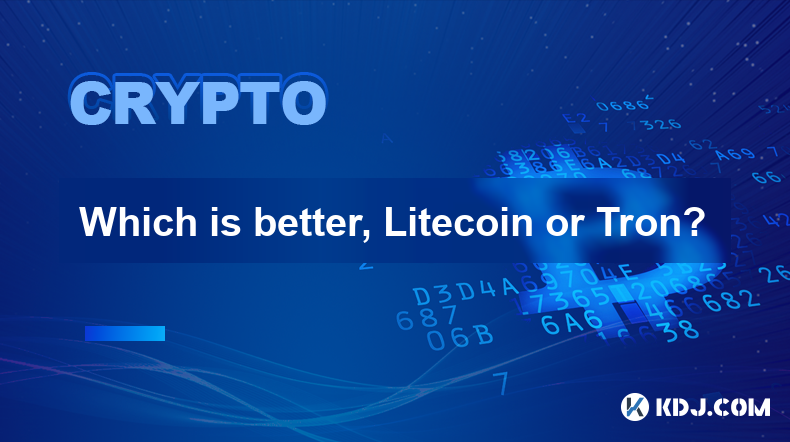
Which is better, Litecoin or Tron?
Feb 04,2025 at 10:30pm
Key Points:Similarities between Litecoin and Tron: Decentralized, open-source blockchain platformsDifferences between Litecoin and Tron: Use cases, consensus mechanisms, transaction speedsFactors to consider when choosing between Litecoin and Tron: Investment goals, risk tolerance, specific use casesPotential benefits and drawbacks of Litecoin and Tron:...
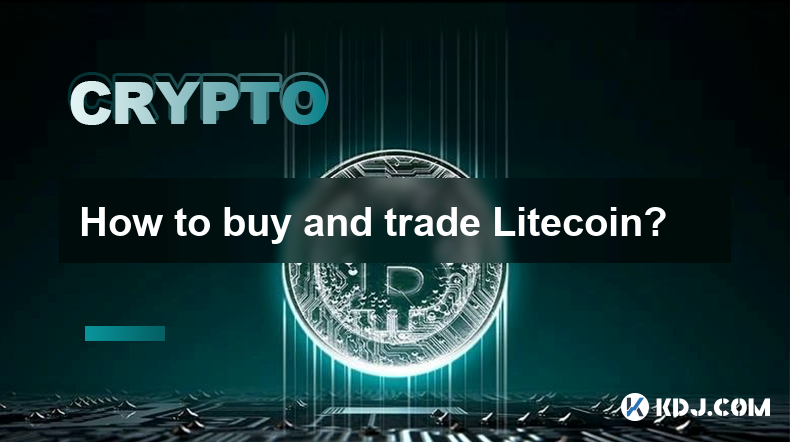
How to buy and trade Litecoin?
Feb 04,2025 at 12:24pm
Key Points:Understand the Basics of LitecoinSelect a Suitable Cryptocurrency ExchangeCreate an Account on the ExchangeFund Your AccountPlace a Buy Order for LitecoinSecurely Store Your LitecoinUnderstand Litecoin TradingHow to Buy Litecoin?1. Understand the Basics of LitecoinLitecoin (LTC) is a decentralized digital currency similar to Bitcoin.Created i...

Which has better potential, Litecoin or Ethereum?
Feb 04,2025 at 05:30pm
Key Points:Litecoin and Ethereum are two of the most popular cryptocurrencies in the world.Both coins have their own unique advantages and disadvantages.Litecoin is a faster and cheaper transaction coin than Ethereum.Ethereum is a more versatile platform than Litecoin, and it can be used to create decentralized applications (dApps).Litecoin has a long h...
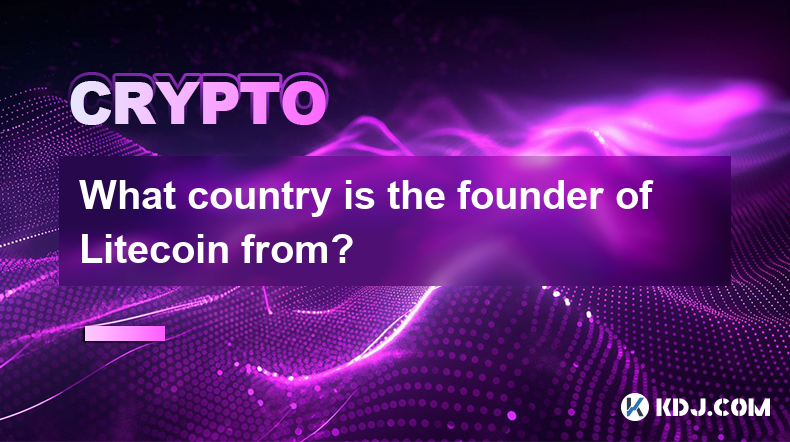
What country is the founder of Litecoin from?
Feb 04,2025 at 05:55am
Key Points:Litecoin's Founder and the Relationship with Charles LeeLitecoin's Technical Features and Similarities to BitcoinLitecoin's Role in the Cryptocurrency Ecosystem and Its PopularityComparative Analysis of Litecoin with Major CryptocurrenciesLitecoin's Community Involvement and PartnershipsArticle Content:Litecoin's Founder and the Relationship ...
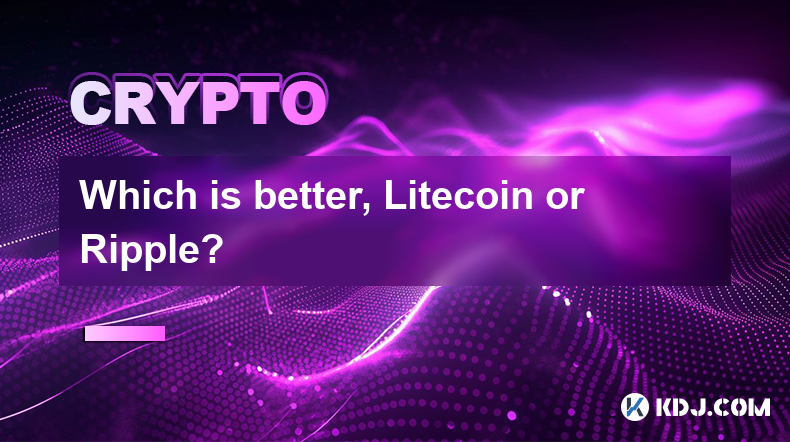
Which is better, Litecoin or Ripple?
Feb 04,2025 at 08:00pm
Key Points:Litecoin: a decentralized, peer-to-peer cryptocurrency based on the Proof-of-Work consensus mechanismRipple: a centralized, enterprise blockchain solution designed for fast and low-cost paymentsDirect comparison of Litecoin vs. Ripple in terms of technology, market capitalization, use cases, and transaction feesPotential benefits and drawback...

When was Litecoin issued?
Feb 04,2025 at 02:36am
When was Litecoin Issued?Key Points:Litecoin's inception and developmentLitecoin's launch date and market dynamicsLitecoin's technical specifications and key featuresLitecoin's Inception and DevelopmentLitecoin, conceived by former Google engineer Charlie Lee, emerged as a fork of Bitcoin in October 2011. Inspired by Bitcoin's revolutionary blockchain t...

Which is better, Litecoin or Tron?
Feb 04,2025 at 10:30pm
Key Points:Similarities between Litecoin and Tron: Decentralized, open-source blockchain platformsDifferences between Litecoin and Tron: Use cases, consensus mechanisms, transaction speedsFactors to consider when choosing between Litecoin and Tron: Investment goals, risk tolerance, specific use casesPotential benefits and drawbacks of Litecoin and Tron:...

How to buy and trade Litecoin?
Feb 04,2025 at 12:24pm
Key Points:Understand the Basics of LitecoinSelect a Suitable Cryptocurrency ExchangeCreate an Account on the ExchangeFund Your AccountPlace a Buy Order for LitecoinSecurely Store Your LitecoinUnderstand Litecoin TradingHow to Buy Litecoin?1. Understand the Basics of LitecoinLitecoin (LTC) is a decentralized digital currency similar to Bitcoin.Created i...

Which has better potential, Litecoin or Ethereum?
Feb 04,2025 at 05:30pm
Key Points:Litecoin and Ethereum are two of the most popular cryptocurrencies in the world.Both coins have their own unique advantages and disadvantages.Litecoin is a faster and cheaper transaction coin than Ethereum.Ethereum is a more versatile platform than Litecoin, and it can be used to create decentralized applications (dApps).Litecoin has a long h...

What country is the founder of Litecoin from?
Feb 04,2025 at 05:55am
Key Points:Litecoin's Founder and the Relationship with Charles LeeLitecoin's Technical Features and Similarities to BitcoinLitecoin's Role in the Cryptocurrency Ecosystem and Its PopularityComparative Analysis of Litecoin with Major CryptocurrenciesLitecoin's Community Involvement and PartnershipsArticle Content:Litecoin's Founder and the Relationship ...

Which is better, Litecoin or Ripple?
Feb 04,2025 at 08:00pm
Key Points:Litecoin: a decentralized, peer-to-peer cryptocurrency based on the Proof-of-Work consensus mechanismRipple: a centralized, enterprise blockchain solution designed for fast and low-cost paymentsDirect comparison of Litecoin vs. Ripple in terms of technology, market capitalization, use cases, and transaction feesPotential benefits and drawback...
See all articles

























































































